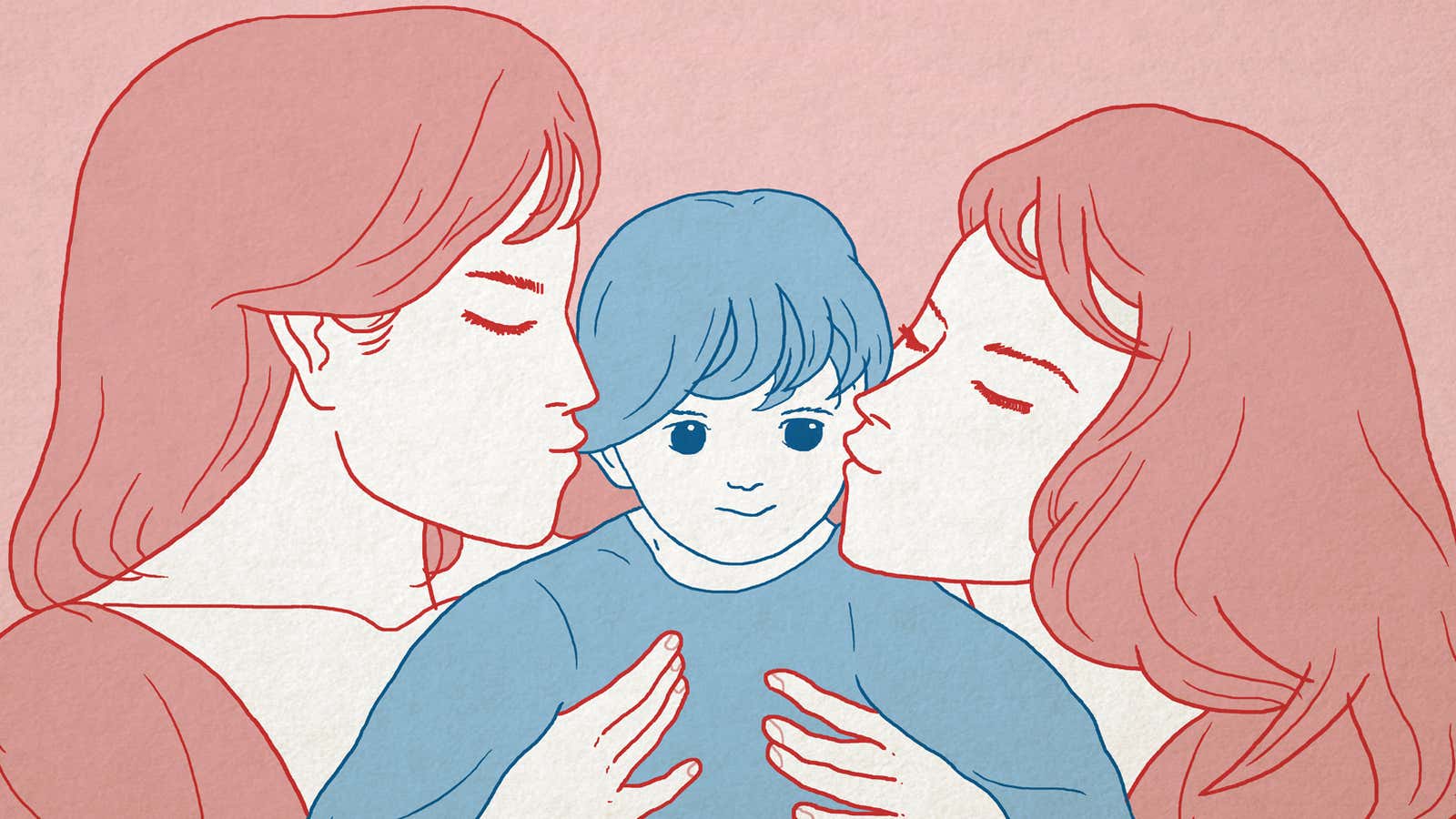With a Supreme Court ruling on the constitutionality of banning same-sex marriage right around the corner, this year’s Father’s Day (or, in many households, Fathers’ Day) seems to be of particular importance for America’s many same-sex families. Though the oral arguments have already been made, the debate over one-mom-one-dad parenting is far from over here in the United States.
At the core of many arguments against same-sex marriage and same-sex parenting is a deep-seated concern for the welfare of the children. Indeed, for the last several years, “But what about the kids!?” has been the go-to argument for the “we-don’t-hate-gays-we-just-don’t-want-them-to-get-married” set. Several questions from the Supreme Court during April’s oral arguments also concerned the children of same-sex couples and our welfare.
It has been my experience that concerns about single-sex parenting generally come from a place of fear—specifically, fear that the children raised in same-sex households will fail to properly learn and adopt gender-appropriate behaviors. These activists worry that girls won’t learn how to have fulfilling and healthy relationships with men (i.e. how to be girlfriends and wives), for example, and vice versa for boys.
I experience this concern in my own life when—upon discovering I was raised by two lesbian moms—people ask me, indignantly or earnestly, something to the effect of, “But who taught you how to be a man?” Citing my favorite cross-dressing Chinese princess and her eponymous Disney film, I typically answer, “Mulan.”
This response, of course, is tongue-in-cheek, but I like it because so much of the conservative anxiety about the “feminization” and/or “emasculation”of America is wrapped up in our concept of national defense. Mulan, of course, is a story about a woman taking her elderly father’s place in the Chinese Army to defend her country against Hun invaders.
This fear of a feminized America, when you get down to it, is also the fear that the next generation of American men will betray their manly forefathers, real men like Clint Eastwood and Steve McQueen and John Wayne. Conservatives fear what they perceive as the disintegration of gender roles in our society, and with their erosion, the disappearance of the rough men willing to visit violence on those who would harm us—the people who “protect us” against invading forces.
But when it comes to the “traditional American family,” there’s a lot people don’t know. For example, it might surprise family values advocates to learn, that the father who inspired the creation of what we now recognize as “Father’s Day” was actually a single dad of six. (I bet you also didn’t know that the original proposed name was “Fathers’ Day.”) Father’s Day, as President Coolidge described it, sought to “establish more intimate relations between fathers and their children and to impress upon fathers the full measure of their obligations.”
And it should be apparent to anyone—liberal, conservative, or of any other political bent—that those obligations transcend gender.
As the proud Eagle Scout son of two moms, I’m unconvinced that an America in which same-sex marriage is recognized as a constitutional right results in less masculine men. I will be the very first person to tell you that growing up with two moms is different from having a mom and a dad—I had to learn how to shave from a best friend’s father, it took me some time to figure out how to relate to and communicate with other guys, and on more than one occasion, I tried too hard to be “the guy.” And I’ll also tell you that the differences at home are less important than the culture of which we are all a part.
My parents valued—and instilled in both my sister and me—a rigorous work ethic, patience, honesty, integrity, and a love of family and community. Are these masculine values? Feminine? More than anything else, I’d say these are the values that are the obligations of parents—fathers and mothers both.
So here’s to the next generation of American dads, of which I earnestly hope to be a part. Here’s to the dads who teach their sons that they should treat all people the way that they wish to be treated. Here’s to the dads who will teach their sons how to provide for themselves and their families as equal partners in a relationship, who understand that being a businessman doesn’t have to be incompatible with being a family man.
Here’s to the dads who teach their sons about rape, who show them what it means to respect consent and the people who give it. Here’s to the dads who teach their sons that life is rarely fair, and that that’s why we have to be the change we want to see. Here’s to the dads who teach their sons that we must be the ones who make it better. And here’s to the moms who do that, too.
Happy Fathers’ Day, everyone.
